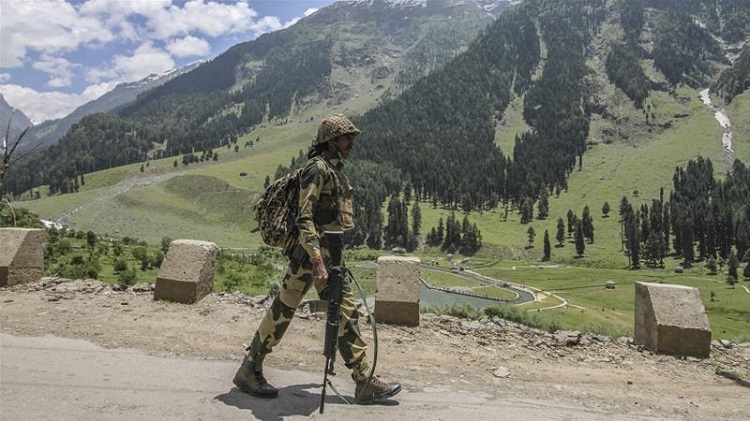Watch to find out more of the issue below.
[rumble video_id=v5fztr domain_id=u7nb2]
Video credit: Rumble
A four-year-old boy was killed after he took home an unexploded artillery shell that he mistook for a toy and later exploded.
The village of Jabri is located in the Neelum Valley where a river divides Indian and Pakistani Kashmir. The village is usually far away enough to avoid being hit by the occasional exchanges of artillery between the two countries but that all changed last month.
Several Indian artillery shells landed near the village but not all of them exploded. Four-year-old Ayan Ali found one such unexploded device and brought it home.
Ali’s uncle, Abdul Qayyum, said, “He found a bomb that looked like a toy and he brought it here,” while pointing to their home.
As Ali and the rest of his family sat down for breakfast, he showed the “toy” but it exploded. The blast instantly killed Ali and wounded eight of his siblings as well as his mother and a young cousin. Two of the children are in critical condition at a hospital.
“They tried to snatch it from him and then it exploded. He died on the spot,” Qayyum said.
According to the Pakistani military, Ali was killed by a cluster bomb, a type of munition that releases scores of bomblets over a wide area. The Geneva Convention prohibits the use of cluster munitions and the Indian military was quick to deny the allegation and said that the shelling was a proportionate response to Pakistani artillery.
A Reuters journalist visited Jabri but could not independently verify the actual device that killed Ali. A small crater marked the place where the device went off.
“The little kids were playing and then there was a loud sound. There was smoke everywhere, I couldn’t see anything,” said Sadaf Siddiq, Ali’s older sister.
Muhammad Hanif, 37, said another shell had hit his home but fortunately, apart from a large hole in the roof no one was injured.
The military has already cleared several unexploded munitions from the area and showed a toy-sized device that is supposedly part of a cluster bomb.
While artillery exchanges have become a common occurrence along the 740-km (460-mile) Line of Control (LoC) in disputed Kashmir, the intensity has increased over the years. Tensions spiked dramatically last week after India revoked the rights of the states of Jammu and Kashmir to set their own laws. Hundreds of political leaders and activists were also arrested and communications out of Indian Kashmir has been practically cut.
Kashmir has been disputed by both countries since 1947 when they gained independence from British colonial rule. Two of the three wars that India and Pakistan have fought were over Kashmir.




